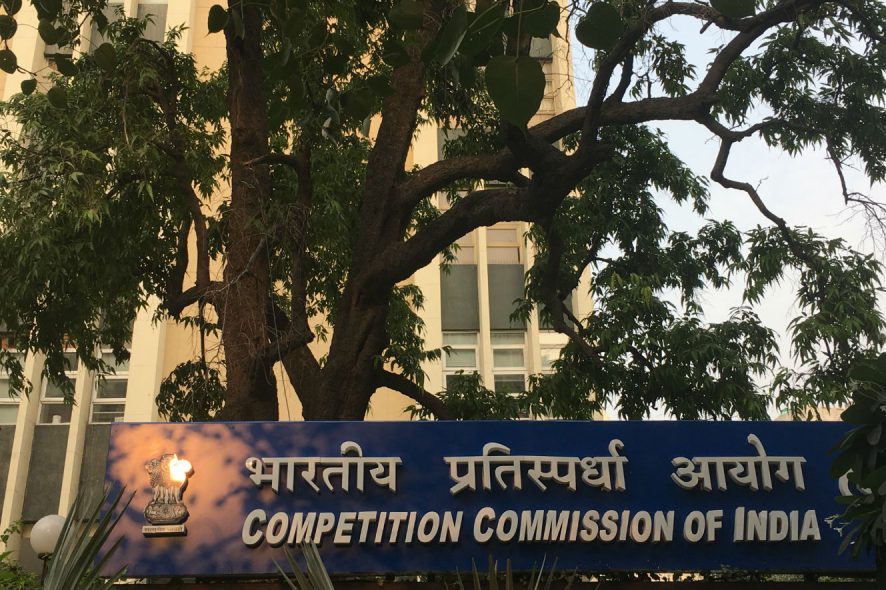Competition Commission of India (CCI): The Coram of Ashok Kumar Gupta (Chairperson) and Sangeeta Verma and Bhagwant Singh Bishnoi (Members), noted allegations against Star India for providing a bouquet of channels at lesser prices resulting in denying of market access and also amounting to unfair pricing.
Background
Informant had filed information under Section 19(1)(a) of the Competition Act, 2002 against Star India (P) Ltd. (OP 1), Disney Broadcasting (India) Limited (OP 2) and Asianet Star Communications Private Limited (OP 3) alleging, inter alia, contravention of the provisions of Sections 4 of the Act.
Further, the informant was stated to be a Multi-System Operator engaged in the business of providing digital TV services, predominantly in Kerala. It also operated in Karnataka, Andhra Pradesh, Telangana and Odisha. Informant provides digital TV services to its customers directly as well as through Local Cable Operators (LCO) and currently provides services to about 10.02 lakh customers in Kerala and a minimal 1.19 lakh customers in all other States combined.
OP 2 was a broadcaster of satellite-based TV channels in India, having multiple channels of different languages and various genres including general entertainment, movies, kids’ entertainment, sports and infotainment.
As per the business arrangement, informant received broadcasting signals from OP-1 for a monetary consideration for the purposes of supplying the channels of OP-1 to customers and for that the informant entered into agreements with OP-1 from time to time.
Allegation
Informant alleged the abuse of dominant position by OPs by discriminating the informant in not extending the discounts, which are offered by its competitors.
Hence, offering discriminatory discounts was alleged to be in contravention of the provisions of Section 4(2)(a)(ii) of the Act being unfair/discriminatory prices, as also the provisions of Section 4(2)(c) as it denied market access to the informant as well due to the inability of the Informant to compete in the downstream market of the distribution of TV channels given the unfair advantage OP-1 had conferred upon the informant’s competitors.
After the introduction of the New Regulatory Framework, ADNPL started losing subscribers to Kerala Communicators Cable Limited (KCCL) as the latter offered low prices to LCOs who, in turn, offered lower prices to subscribers.
In gist, the informant alleged that OP-1 was in a dominant position on account of its significant market share, size and economic resources since it was a part of the global media conglomerate, dependence of consumers and its countervailing power. The said conduct violated provisions of Section 4(2) (a) (ii) of the Act and Section 4(2) (c) thereof since the discriminatory discounts amount to unfair/discriminatory price and denied market access to the Informant as it was unable to compete in the downstream market of distribution of TV channels considering the unfair advantage of OP-1 had conferred upon ADNPL’s competitor KCCL.
Analysis and Decision
The Commission observed that the crux amongst all the allegations was the offering of additional discounts to select MSOs and the main competitor of ADNPL in Kerala, viz KCCL, OP-1 had placed the MSOs at a huge disadvantage which was detrimental to the competition and competitors in the market.
Coram noted that the OP-1 had around 50 entertainment channels and over 15 sporting channels with exclusive content of the major sporting events such as ICC, IPL, ODIs, Wimbledon, French Open etc. making access to its bouquet of channels indispensable for any MSO operator, especially when some of the most popular as per TRPs, regional and nationwide channels belonged to the OPs.
OP-1 enjoyed a position of dominance in the relevant market.
KCCL was getting channels at about 30% of the MRP with about 70% discount whereas the maximum permissible discounts under the New Regulatory Framework was capped at 35%. OP 1 was alleged to have chosen an indirect way to provide discounts to circumvent the new Regulatory Framework by way of promotion and advertisement payments to KCCL through high valued advertising deals.
In view of the above, the Informant was constrained to price its channels at a higher price than that of KCCL and ultimately pay the price by losing consumers consistently whereas KCCL had gained new consumers.
Ultimately, the informant was offering services at loss making price just to prevent the subscriber base from migrating to KCCL’s services but in vain.
Due to the alleged discriminatory conduct of price discrimination between different MSOs and OP-1 resulted in significant loss in the consumer base of the informant and therefore, prima facie appeared to be a violation of the provisions of Section 4(2)(a)9ii) of the Act as also in contravention of the provisions of Section 4(2)(c) of the Act due to discriminatory pricing and denial of market access.
Therefore, alleged discriminatory conduct of price discrimination between different MSOs of OP-1 resulted into significant loss in the consumer base of the Informant and therefore prima facie appeared to be in violation of provisions of Section 4(2)(a)(ii) of the Act as also in contravention of the provisions of Section 4(2)(c) of the Act due to discriminatory pricing and denial of market access respectively.
Commission directed DH to cause an investigation in the above matter. [Asianet Digital Network (P) Ltd. v. Star India (P) Ltd., 2022 SCC OnLine CCI 5, decided on 28-2-2022]






